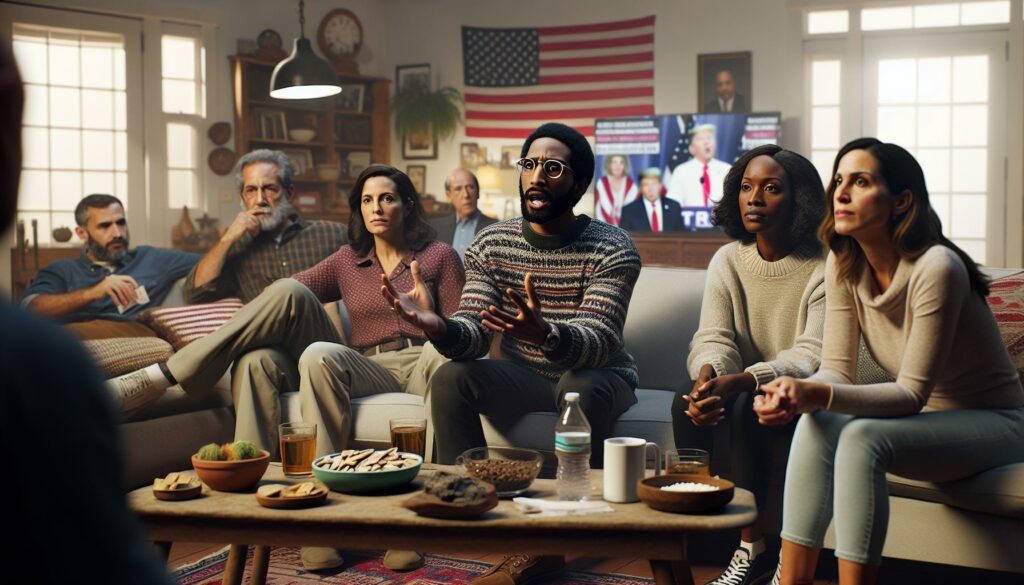Talk shows have become a staple of entertainment, blending humor, news, and celebrity gossip in ways that keep viewers glued to their screens. Whether it’s a late-night host cracking jokes or a daytime diva tackling serious issues, these shows offer something for everyone. With a myriad of formats and personalities, it’s no wonder they draw in millions of fans daily.
Talk Ahows List
Talk shows serve as a significant source of entertainment, providing audiences with a mix of engaging content. Formats vary widely, encompassing interviews, panel discussions, and comedy skits that resonate with numerous viewers. Celebrities often grace these shows, sharing insights and personal stories that captivate audiences. Furthermore, hosts play a crucial role, using their unique styles to create engaging conversations.
Diverse themes enrich the landscape of talk shows. Some focus on current events, while others delve into pop culture or lifestyle topics. By incorporating humor and relatable discussions, these shows attract a broad demographic. Timing also plays a vital role, with many airing during prime hours to capture the largest audience.
Ratings reflect the popularity of this genre. For instance, shows such as “The Tonight Show” and “The Ellen DeGeneres Show” consistently rank among the top. Networks compete to host influential figures who can draw in viewers and boost advertising revenue. This competition leads to innovative formats and strategies, enhancing the overall viewing experience.
Viewership demographics shift over time, influenced by social trends and technological advancements. Younger audiences often gravitate toward platforms that offer on-demand content, while traditional television still holds a strong presence among older viewers. This dynamic necessitates adaptation in content delivery, ensuring relevancy across different age groups.
Overall, the vibrant world of talk shows remains a staple in entertainment, adapting and thriving amidst changing viewer preferences. Engaging hosts, compelling topics, and the interplay of celebrities contribute to the enduring appeal of this format.
Popular Talk Shows List

Talk shows attract a wide range of audiences with their engaging formats and varied themes. The following sections highlight popular daytime and late-night talk shows.
Daytime Talk Shows
Daytime talk shows cater to viewers seeking entertainment and information during the day. These programs often feature celebrity interviews, lifestyle segments, and audience participation. Notable examples include “The View,” which offers diverse perspectives on topical issues, and “The Ellen DeGeneres Show,” known for its upbeat atmosphere and charitable initiatives. “Dr. Phil” focuses on psychology and life advice, drawing significant viewer engagement. Ratings consistently reflect their popularity, with many shows airing episodes five days a week, creating a loyal fan base among daytime audiences.
Late Night Talk Shows
Late-night talk shows provide a mix of humor and celebrity interactions, ideal for evening entertainment. They commonly feature monologues, comedic sketches, and interviews with prominent figures. “The Tonight Show Starring Jimmy Fallon” stands out for its playful approach, while “The Late Show with Stephen Colbert” is recognized for its incisive political commentary. Additionally, “Jimmy Kimmel Live!” engages viewers with audience pranks and viral segments. Each show competes for ratings, contributing to innovative formats and content. These late-night programs cultivate a dedicated viewership, often broadcasting four to five episodes weekly.
Features of Talk Shows

Talk shows feature a blend of interactive elements that captivate audiences and promote engagement. These programs utilize various interview formats and foster audience participation.
Interview Formats
Interview formats in talk shows vary widely. Hosts may conduct one-on-one interviews with celebrity guests, allowing for deeper conversations. Some shows employ panel discussions, where multiple guests share perspectives on a topic. Others utilize remote interviews, connecting with guests through video calls, maintaining viewer interest. Some formats include audience participation during interviews to create a dynamic environment. This variety enhances the viewer experience by providing insight into different personalities and topics.
Audience Engagement
Audience engagement plays a crucial role in the success of talk shows. Many hosts incorporate live audiences, fostering an interactive atmosphere that heightens excitement. Social media platforms serve as a bridge between viewers and hosts, enabling fans to submit questions and comments in real time. Contests and giveaways boost participation, encouraging loyal viewership. Enhanced interaction through polls and live responses allows hosts to address current events or viewer interests swiftly. The integration of audience feedback shapes show dynamics, creating a unique connection that resonates with diverse demographics.
Impact of Talk Shows on Society

Talk shows influence societal views and drive conversations on important issues. They often address current events and social topics, fostering public discourse. Insights shared by guests can shape opinions and motivate audience members to get involved in various causes.
In fostering awareness, talk shows tackle crucial themes like mental health, social justice, and environmental concerns. Programs frequently invite experts or activists to share knowledge, encouraging viewers to learn more. Through discussions, audiences gain diverse viewpoints, which can challenge preconceived notions.
Audience engagement plays a vital role in this medium. Interactive elements like audience questions and social media interactions invite participation. Viewers often feel a sense of connection, allowing them to voice their opinions and experiences.
The comedic elements of many talk shows also impact societal attitudes. Humor can make serious topics more approachable, helping to reduce stigma around various issues. This approach encourages open conversations that would otherwise remain uncomfortable.
Viewership demographics matter to advertisers and networks alike. Younger audiences gravitate toward platforms that offer flexibility, while older viewers remain loyal to traditional television. This shift necessitates adaptations in content and format, as networks strive to appeal to a broader range of viewers.
Overall, talk shows serve as both entertainment and a forum for important discussions. The ability of hosts to connect with guests and audiences fosters a relatable environment. Key societal issues often emerge through these discussions, making talk shows an essential part of contemporary media.
Vital Component of Modern Entertainment
Talk shows continue to thrive as a vital component of modern entertainment. Their ability to blend humor with serious discussions keeps audiences engaged and informed. As hosts and guests navigate various topics they not only entertain but also provoke thought and spark conversations that resonate with viewers.
The dynamic formats and interactive elements of these shows cater to a wide range of interests. This adaptability ensures that talk shows remain relevant in an ever-changing media landscape. As they evolve with technology and viewer preferences talk shows will undoubtedly maintain their influential role in shaping public discourse and culture.



